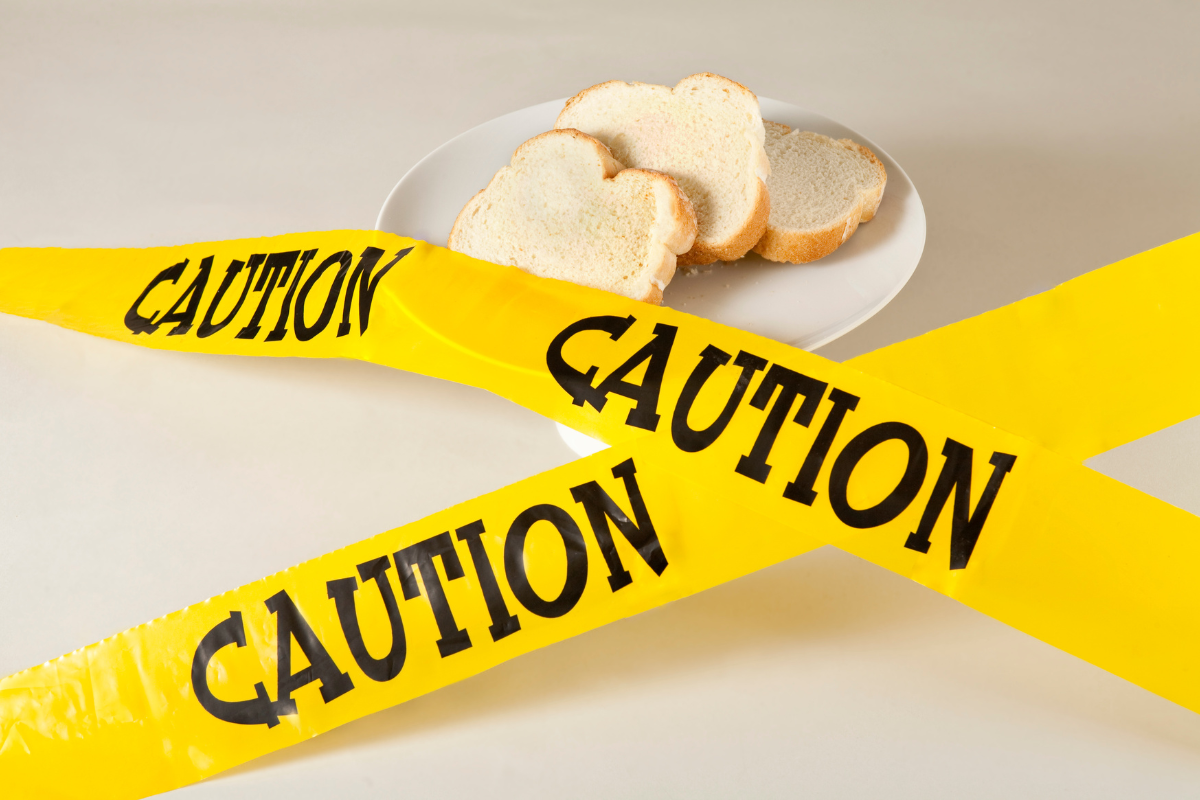“A little bit won’t hurt” – the myth behind coeliac disease

Last Thursday marked the start of Coeliac Awareness week, and while many people do understand coeliac disease requires a strict gluten-free diet, there is a pretty big gap in understanding just how serious even cross-contamination can be for those who live with it.
One of the biggest misconceptions (that even those who experience sometimes think) - someone with coeliac disease who doesn’t experience severe, immediate symptoms after eating gluten, is fine and doesn’t need to be as careful. The reality is: even if there are not any major or obvious reactions, for those who are coeliac, internal damage is still happening.
Coeliac disease vs gluten free
Let’s first look at the difference between a coeliac, and someone who is gluten free.
- Coeliac disease is an autoimmune condition where even trace amounts of gluten (yes, this means even food that’s cooked on the same surface can trigger a reaction) trigger an immune response, causing inflammation and damage to the small intestine. This can lead to malabsorption of nutrients, digestive issues, chronic fatigue, neurological symptoms and increased risk of serious conditions.
- Gluten intolerance or sensitivity can cause discomfort and digestive issues but does not trigger the same immune damage as coeliac disease. People who suffer thyroid issues, or insulin sensitivity, are perfect examples of someone who may be intolerant, but not coeliac. While those with sensitivities may choose to avoid gluten, they don’t face the same medical necessity to eliminate it completely.
For coeliacs, there is no “just a little bit” or “cheat days.” Every exposure – whether or not it causes immediate symptoms – can contribute to long-term harm.
Too-often coeliac’s still take risks while dining out. One of these major reasons is the lack of awareness surrounding cross contamination. While restaurants are improving, there is still a gap in understanding that even preparing food on the same surface creates a significant risk, and some simply don’t take it as seriously as they should. The other risk is those who don’t experience an immediate reaction to gluten. Some coeliacs don’t experience immediate reactions, or the symptoms are mild, making it easier to justify eating something they know might be contaminated. Does this sound like you? Just because you don’t feel it, doesn’t mean the damage isn’t occurring.
Why every exposure matters
The biggest issue is that even if you don’t feel sick, gluten exposure in coeliac disease still triggers and immune response. This means:
· Intestinal Damage Continues – The immune system attacks the small intestine, leading to inflammation and destruction of the gut lining.
· Nutrient Absorption Declines – Even small amounts of gluten can affect the body’s ability to absorb essential vitamins and minerals like iron, calcium, and B12.
· Increased Risk of Long-Term Complications – Persistent exposure raises the risk of osteoporosis, infertility, neurological disorders, and even certain cancers.
The good news is that awareness is growing, and more restaurant are stepping up to provide truly gluten-free options. In fact, there really has never been an easier time to be coeliac! (that doesn’t mean there’s not improvements to be made!)
It’s important we continue to push for better understanding – not just about what it is but why taking it seriously is so important.
Please update the “Product” setting with the product you want to display.






